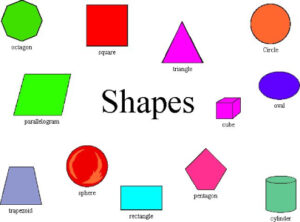Mathematics is a subject that strikes fear into the hearts of many students, yet it’s a fundamental skill that underpins numerous aspects of our lives and careers. Whether you’re struggling to grasp basic arithmetic or grappling with advanced calculus, improving your math skills is an achievable goal with the right strategies and mindset.
In this article, we’ll explore practical tips and techniques to help you become better at math, demystify the subject, and unlock its power.
1. Cultivate a Positive Mindset
One of the biggest obstacles to excelling in math is the belief that you’re “just not good at it.” This negative mindset can become a self-fulfilling prophecy, creating a mental block that hinders your ability to learn and understand mathematical concepts. The truth is, that anyone can become better in math with the right approach and dedication.

To cultivate a positive mindset, start by acknowledging that math is a skill that can be developed through practice and perseverance. Embrace mistakes as learning opportunities rather than failures, and celebrate small victories along the way. Seek out role models or successful individuals who have overcome similar struggles with math, drawing inspiration from their stories.
2. Build a Solid Foundation
Math is a subject that builds upon itself, with each new concept relying on a solid understanding of previous topics. If you have gaps in your foundational knowledge, it can be challenging to grasp more advanced material. Take the time to identify and address any weaknesses in your basic math skills, such as arithmetic, fractions, and algebra.

Consider seeking extra help from a tutor, utilizing online resources, or enrolling in a remedial course to strengthen your fundamentals. Building a strong foundation will not only improve your grasp of current material but also prepare you for future math challenges.
3. Practice, Practice, Practice
Like any skill, becoming proficient in math requires consistent practice. Don’t be discouraged if concepts don’t click immediately – repetition and active engagement with the material are key to solidifying your understanding.

Work through practice problems regularly, and don’t be afraid to make mistakes. Analyze your errors to identify where you went wrong, and use that knowledge to strengthen your approach. Additionally, consider keeping a math journal to document your thought processes, questions, and breakthroughs – this can serve as a valuable reference and reinforce your learning.
4. Embrace Visual Aids
Math can be an abstract subject, but visualizing concepts can make them more concrete and easier to grasp. Utilize diagrams, graphs, and models to represent mathematical ideas and relationships. These visual aids can help you develop a deeper understanding and provide a tangible way to work through problems.

For example, when studying geometry, drawing diagrams can clarify relationships between angles, lines, and shapes. In algebra, creating visual representations of equations can reveal patterns and connections that may not be immediately apparent from the symbolic notation alone.
5. Collaborate and Seek Support
Learning math doesn’t have to be a solitary endeavor. Collaborating with classmates, joining study groups, or seeking guidance from a tutor or teacher can provide valuable support and fresh perspectives.

Discussing concepts, working through problems together, and explaining your thought processes to others can solidify your understanding and expose gaps in your knowledge. Additionally, seeking help when you’re stuck can prevent minor stumbling blocks from becoming major roadblocks in your math journey.
6. Connect Math to Real-World Applications
For many students, math can feel abstract and disconnected from their daily lives. However, making connections between mathematical concepts and real-world applications can help make the subject more relevant and engaging.

Look for ways to apply math principles to everyday situations, such as calculating discounts while shopping, tracking personal finances, or understanding statistics in news reports. Exploring careers that rely heavily on math, such as engineering, finance, or computer programming, can also provide motivation and illustrate the practical value of mathematical skills.
7. Develop Problem-Solving Strategies
Math is not just about memorizing formulas and techniques; it’s also about developing problem-solving strategies. Cultivate a methodical approach to tackling math problems, breaking them down into smaller steps and identifying patterns or relationships.

Encourage yourself to think critically and creatively, considering multiple approaches and alternative solutions. Don’t be afraid to ask clarifying questions or challenge assumptions – this can lead to deeper insights and a stronger grasp of the underlying concepts.
8. Celebrate Your Progress
Finally, it’s essential to celebrate your successes along the way, no matter how small they may seem. Improving your math skills is a journey, and acknowledging your progress can provide motivation and reinforce your positive mindset.

Set achievable goals, such as mastering a specific concept or earning a higher grade on an exam, and reward yourself when you reach those milestones. This positive reinforcement can fuel your confidence and drive you to continue pushing forward.
READ ALSO
Conclusion
Becoming better at math is an attainable goal for anyone willing to put in the effort and embrace the right strategies. By cultivating a positive mindset, building a solid foundation, practicing consistently, embracing visual aids, collaborating with others, connecting math to real-world applications, developing problem-solving strategies, and celebrating your progress, you can demystify the subject and unlock its power.
Remember, math is a skill that can be developed with dedication and perseverance – so don’t be discouraged by setbacks, and keep pushing forward on your journey to mathematical excellence.
RELATED
How to get better at Math – By SplashLearn
References:
1. Boaler, J. (2016). Mathematical Mindsets: Unleashing Students’ Potential through Creative Math, Inspiring Messages and Innovative Teaching. Jossey-Bass.
2. Dweck, C. S. (2006). Mindset: The New Psychology of Success. Random House.
3. National Council of Teachers of Mathematics. (2014). Principles to Actions: Ensuring Mathematical Success for All. NCTM.
4. Willingham, D. T. (2009). Why Don’t Students Like School? A Cognitive Scientist Answers Questions About How the Mind Works and What It Means for the Classroom. Jossey-Bass.
5. Zill, D. G., & Dewar, J. M. (2011). Precalculus with Calculus Previews (5th ed.). Jones & Bartlett Learning.
6. Devlin, K. (2000). The Math Gene: How Mathematical Thinking Evolved and Why Numbers Are Like Gossip. Basic Books.
7. Polya, G. (2014). How to Solve It: A New Aspect of Mathematical Method (4th ed.). Princeton University Press.

